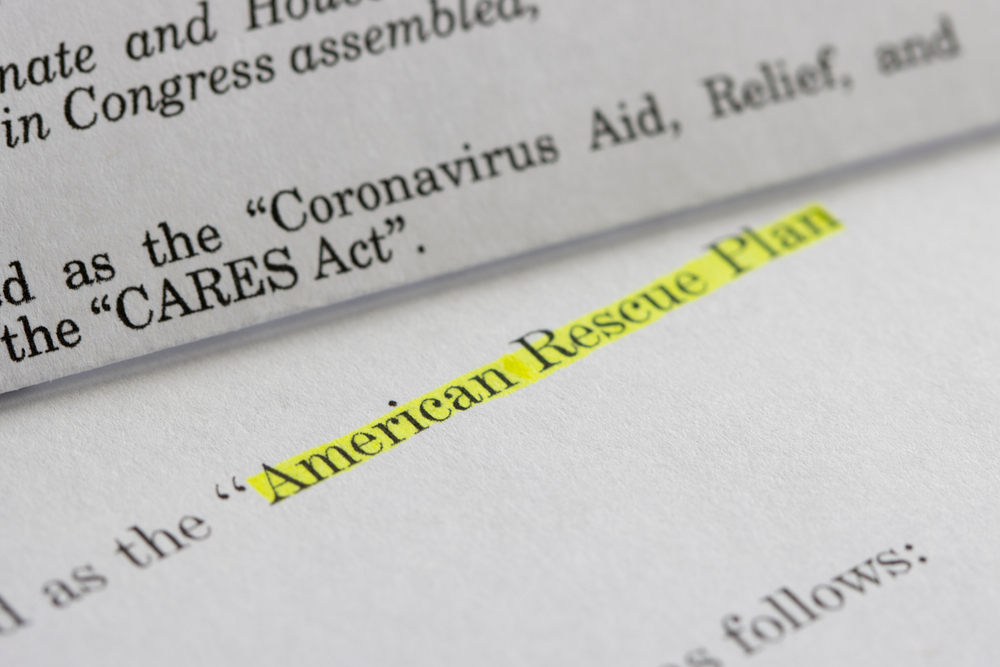President Joe Biden recently signed the American Rescue Plan Act of 2021 (ARPA). The measure was passed on party-line votes in the Senate (50-49) and the House, where only one Democrat crossed over to oppose it. The final bill differs from an earlier House-passed version. Some provisions were eliminated for procedural reasons while others were modified to secure the votes of more conservative Democrats in the Senate. Read on to learn how the law will affect employers.
Relevant Details for Employers
The ARPA extends a federal tax credit for employers that choose to continue providing leave (and receiving federal reimbursement) under the Families First Coronavirus Response Act (FFCRA) until September 30, 2021. As you may recall, employers covered by the initial FFCRA (those with fewer than 500 employees) were required to provide 80 hours of Emergency Paid Sick Leave (EPSL) and/or up to 12 weeks of Expanded Family and Medical Leave Act (EFMLA) leave.
In particular, the changes to the EFMLA’s terms just approved by Congress are significant, and we believe most employers will choose not to extend the leave. Here are two key changes that will be in effect between April 1 and September 30:
- You aren’t required to provide the EPSL or EFMLA leave but may “opt in” and receive credits for any qualifying payments.
- EPSL leave may be used for two new reasons (in addition to six original reasons): (1) An employee is seeking or awaiting a COVID-19 diagnosis after exposure or after your request for the individual to be tested, and (2) an employee is obtaining the coronavirus vaccine or recovering from an adverse reaction to the shots.
Both new reasons are covered at the 100% wage rate, up to $511 per day. In addition, EPSL leave entitlement (80 hours for full-time employees, prorated for part-timers) was changed to reset on March 31, 2021.
The six original ways for employees to qualify for the EPSL leave included (1) being subject to a COVID-19-related isolation or quarantine order, (2) being advised by a healthcare provider to self-quarantine, (3) experiencing coronavirus symptoms and seeking a diagnosis, (4) caring for an individual under an isolation/quarantine order or medical advice, (5) caring for a child because of a school closure or loss of childcare, or (6) some other reason designated in the future by the secretary of the U.S. Department of Health and Human Services.
Other Big Changes
Going forward, if you provide EFMLA leave, it can be used for not only school closures and childcare loss (as in the original FFCRA) but also all the reasons for which EPSL may be granted. This is a tremendous addition because the EFMLA is a 12-week entitlement and was previously limited to being used only for the school closures or loss of childcare. Unlike with the EPSL, however, EFMLA entitlement didn’t automatically renew on April 1, 2021.
The changes approved by Congress eliminate the first 10 days of EFMLA leave being unpaid. The credit limit goes up to $12,000 (from $10,000) in the aggregate but retains the daily limit of $200.
Congress also added a nondiscrimination rule invalidating the tax credit if an employer discriminates in favor of highly compensated, full-time, or longer-tenured employees. To us, the addition seems redundant because we read a previous voluntary extension as indicating you could receive the credit only if you acted as if you were still generally bound by the FFCRA’s rules.
Finally, the ARPA extends pandemic unemployment assistance (covering gig workers and independent contractors, who typically can’t receive jobless benefits) and pandemic emergency unemployment compensation (providing additional weeks of benefits) through September 6, 2021. Those receiving the jobless benefits get a supplemental $300 per week.
What’s Not in Bill (Again, That’s Relevant to Employers)
A $15-per-hour minimum wage plan that was inserted into the House’s version of the bill was struck by the Senate parliamentarian as an inappropriate addition under the rules for budget bills. Several Democratic legislators have vowed we’ll see the proposal again.
Whitney R. Brown is an attorney with Lehr Middlebrooks Vreeland & Thompson, P.C., in Birmingham, Alabama. You can reach her at wbrown@lehrmiddlebrooks.com.
The post How American Rescue Plan Act Affects Employer appeared first on HR Daily Advisor.
